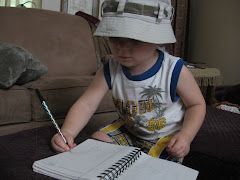A fairly new genre of Young Adult (YA) fiction is the “verse-novel,” a story told in free verse poetry. This form of writing has been gaining momentum since the early 1990s when novels in verse were starting to make an impression on the YA literature landscape.
Verse-novels are an evolving art form. As explained by Joy Alexander in her article “The Verse Novel: A New Genre” (Children’s Literature in Education, September, 2005), there is the question about what a verse-novel truly is. In some cases, a series of poems linked in a narrative sequence is seen as a verse-novel, while in other cases, an entire story being told in free verse is a verse-novel. It is this latter definition that seems to be taking over, and I believe rightly so.
Alexander makes the comment that this genre has “limited appeal for young readers.” I’m curious what she means by “young” as well as “limited.” As a high school teacher, I find that once young adults discover this genre, they tend to love it. There are several reasons I think this is so:
1. These novels are extremely quick reads. Even Ellen Hopkins’s verse-novels, which can be upwards of 700 pages, can be read in no time due to the verse-novel format where there are few lines on most pages. I find kids feel proud of the fact that they can read such a “fat” book after being so used to heading to the library to look for the skinniest book on the shelf.
2. The topics of the books tend toward the serious side. Students enjoy the fact that they either see themselves or others in the characters in the verse-novels they have read. Most verse-novels are told in first person, so the character telling the story and those around him or her are often very nicely developed.
3. These books are unique, and this appeals to my adolescent readers. They are reading a story and poetry all at once. That’s a heady feeling to be so literary for some of my kids!
Some verse-novels find themselves on the challenged list. One of the most challenged may be the books of Ellen Hopkins, whom I mentioned earlier. Her stories are edgy and include language and situations that are graphic and explicit. Hopkins was even uninvited from the Humble ISD’s literary festival that was scheduled for January, 2011, when several parents complained about the content of her books. That is unfortunate because many students find their lives mirrored in the pages of her book. Last spring, one of my high school boys who had just finished reading one of her books said something like, “This [drug-addicted character] is like my mom. I kind of get her better now.” It didn’t make his life any easier, but it was helping him process why she was the way she was. I wouldn’t trade that experience for him for anything.
Some verse-novels to try:
Crank by Ellen Hopkins (2004)
This is the story of 17-year-old “good girl” Kristina Snow who is introduced to crystal meth, or “crank,” when she visits her biological father. Under the influence of this highly addictive drug, Kristina becomes the uninhibited Bree, and as her life spirals out of control, her future becomes more and more uncertain. This is the novel in verse that my high school student was referring to when he said he understood his mother better. A sad portrayal of a life taken by the monster that has claimed so many lives.
All the Broken Pieces by Ann Burg (2009)
Twelve-year-old Matt is adopted. His Vietnamese mother gave him up when he was 10 to be airlifted out of war-ravaged Vietnam, and his new parents are American. He has many worries and concerns as he thinks about his biological mother and brother while facing prejudice and discrimination from those around him who are still hurting from the after shocks of the Vietnam War. Eventually, a new baseball coach, Matt’s adoring adoptive parents, and a group of Vietnam Vets help him find his way through the pain and into discovering who he really is.
Because I am Furniture by Thalia Chaltas (2009)
Anke’s father abuses everyone in the family but her – her mother, her sister, and her brother. Because she is left alone, she feels relieved, but oddly enough, also worthless. When she makes the volleyball team at school, she starts finding her voice and her confidence. And this leads her to try to figure out how she can speak about what is happening in her family and get it to stop. I think the poetry in this novel in verse is particularly well done.
Poetry (Dress) Giveaway
3 days ago





Still following your blog. I'm glad you got back to it!
ReplyDeleteLindsey
Hi, Lindsey! This series is really fun to write. Thanks for following!
Delete